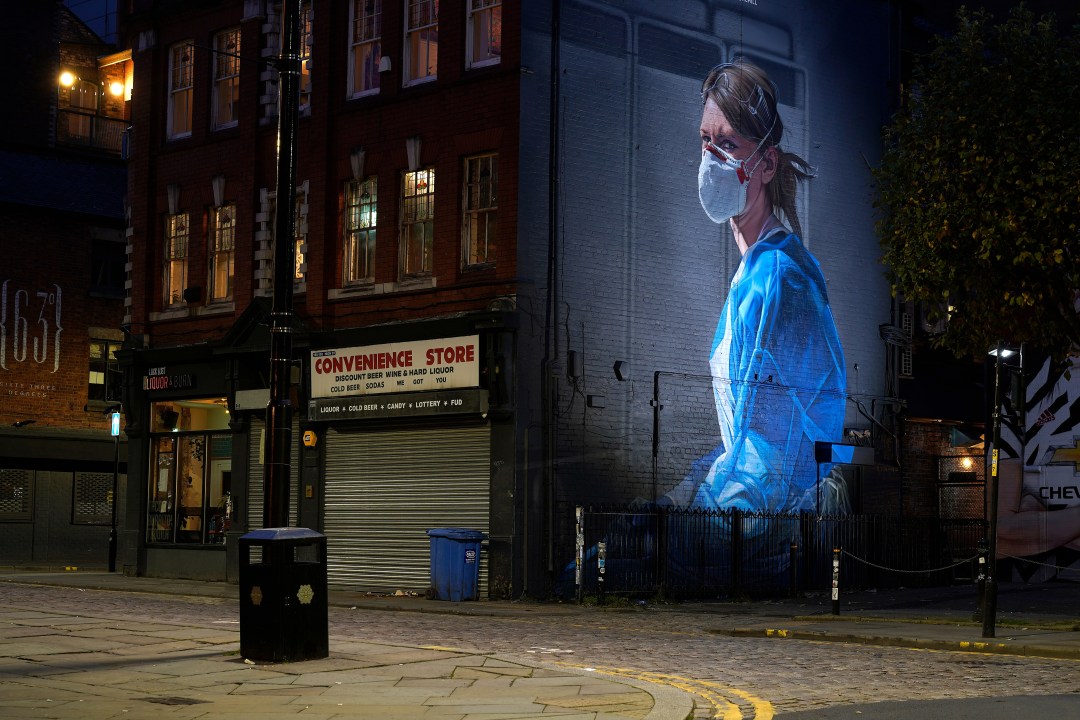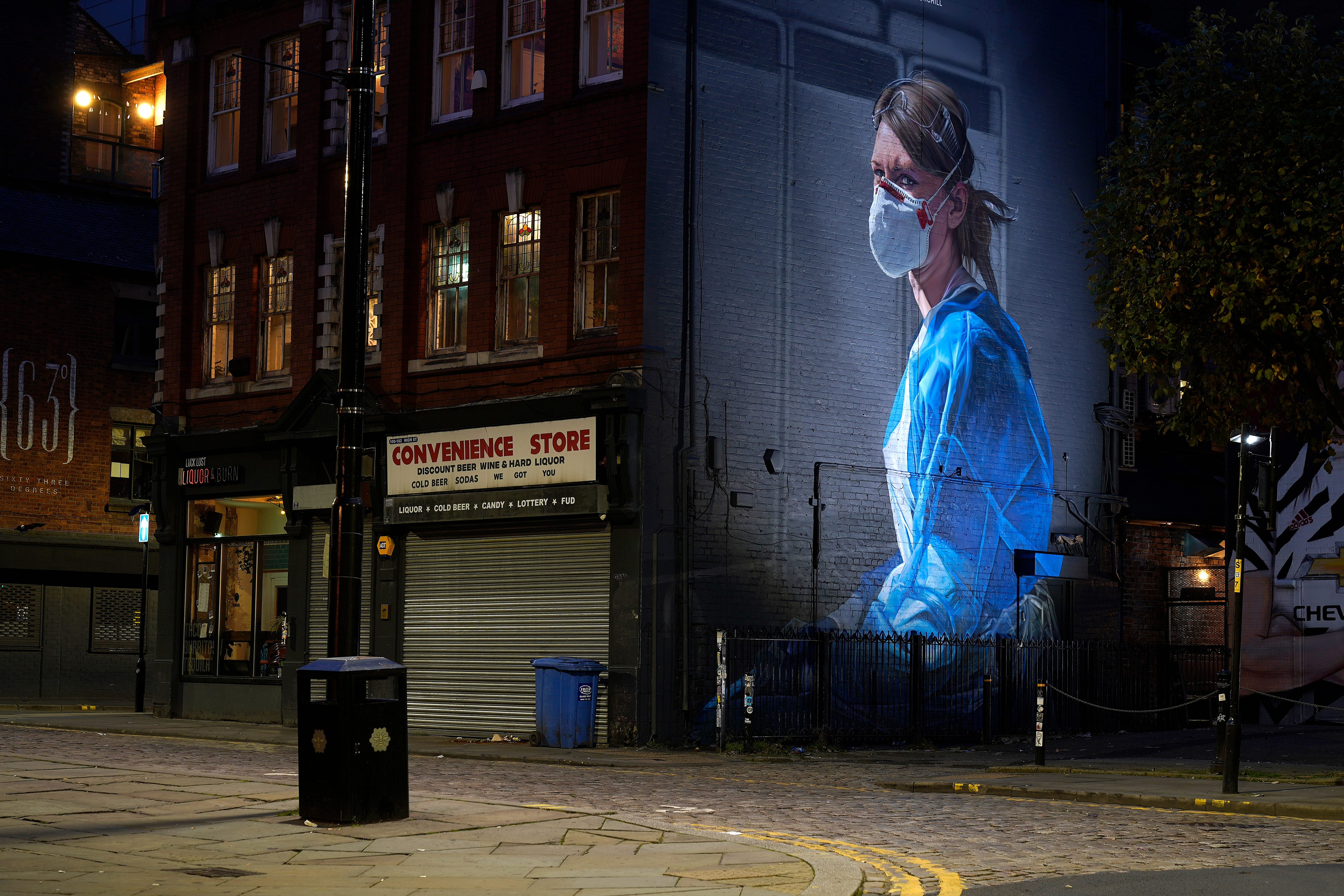Is Andy Burnham’s resistance to tier three a principled stand or just an attempt to extract more money from central government? While Burnham is insisting that he ‘won’t be rolled over’ for money — he is believed to have been offered between £75 million to £100 million if he agrees to the higher level of restrictions — communities secretary Robert Jenrick is insisting that the government is close to making a deal with Andy Burnham’s local authority.
Meanwhile, what no one seems to have noticed — or at least are not letting on — is that cases in Manchester are now falling and are showing signs of levelling off in the other nine boroughs that make up Greater Manchester. In the city of Manchester itself — which has been the seat of the local epidemic, and which accounts for 20 per cent of the population of Greater Manchester — the seven day rolling average of new cases peaked on 3 October at 460. A week later it was 382 and by the Saturday just gone, it was 243. While infections in other boroughs have yet to show a sustained fall, they have either levelled off or have substantially slowed.
Nor, it seems, do reports of overflowing hospitals stack up. On Sunday, the Observer reported on a leaked NHS document showing that 211 out of 257 critical care beds in Greater Manchester were occupied on Friday — 82 per cent of the total.
It echoed reports from a Liverpool councillor last week who claimed that 95 per cent of intensive care beds in the city were occupied — a claim that didn’t stand up to closer examination. If 80 per cent of Greater Manchester critical care beds are currently occupied, this would in fact be less than last October, when Manchester University Hospitals Trust recorded that 87 per cent of its beds (94 out of 108) were occupied.
Wherever the Observer figures came from, they didn’t quite match up with the picture painted by Dr Indeewar Kapila, an intensive care consultant in Manchester who was interviewed on the Today programme this morning. Speaking of intensive care beds rather than critical care beds, he said that on Friday, 90 to 100 of the 270 beds were occupied. A YouTube video released by Andy Burnham claims that as of last Tuesday, 55 ICU beds in Greater Manchester were occupied by Covid patients. Kapila described the situation as ‘very concerning’ because he was worried about what might happen over the next couple of weeks if cases translate into a rise in emergency admissions.
But for the moment, hospitals in Manchester have capacity. Attempts to exaggerate the level of crisis serve only to feed another crisis: that of people failing to seek timely medical attention for non-Covid related conditions. It is all too easy to scare people away from hospital for fear of getting in the way of the treatment of Covid patients.
A report over the weekend by the healthcare analysis firm Dr Foster revealed that the number of consultations for breast cancer during April and May, for example, fell by 30 per cent and bowel cancer by 39 per cent. These will inevitably have resulted in missed diagnoses which could lead to more cancer deaths over the next few years. During the first wave of Covid-19 we were all implored to ‘stay home’ and ‘protect the NHS’. Meanwhile, there has been a huge increase in the number of people dying at home. An ONS report this morning reveals that between 28 December and 11 September, 108,842 people died in private homes — 25,472 more than the five-year average.
Now listen to Coffee House Shots, with Cindy Yu, James Forsyth and Katy Balls on the lockdown negotiations.
This article is free to read
To unlock more articles, subscribe to get 3 months of unlimited access for just $5








Comments
Join the debate for just $5 for 3 months
Be part of the conversation with other Spectator readers by getting your first three months for $5.
UNLOCK ACCESS Just $5 for 3 monthsAlready a subscriber? Log in